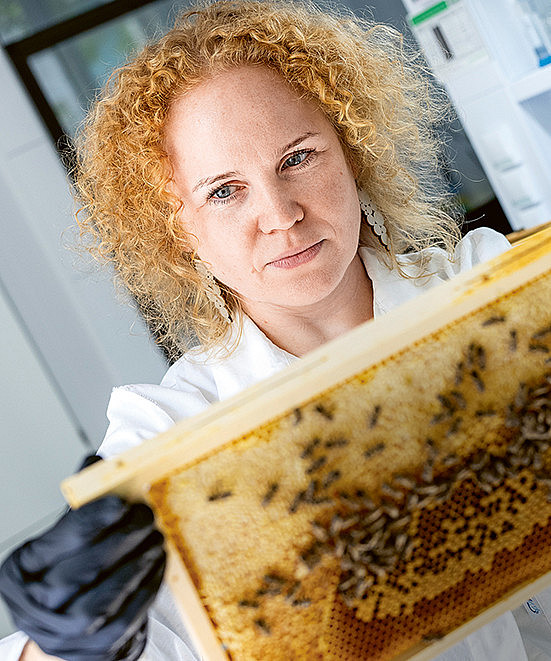Vaccinations protect us from diseases. This method can also be applied to honey bees to arm them against the bacterial infection American Foulbrood. An international study with the participation of the University of Graz proves the effectiveness of the first vaccine for insects. A team led by biologist Dalial Freitak has proven that the immunisation of the vaccinated queen bee is transmitted to subsequent generations.
"An attenuated pathogen is administered to the queen bee via food and triggers an immune reaction," Dalial Freitak describes. "This not only protects her, but even her offspring. Indeed, we were able to show that infected larvae were significantly more resistant to foulbrood after vaccinating their queen than the offspring of the control group, which received a placebo."
The zoologist is convinced: "This treatment method opens up completely new perspectives for combating serious diseases in insects." For Freitak warns, "We have already lost 70 to 80 per cent of insect species worldwide. We need to act quickly."
In any case, there should now be an effective tool in the future against American Foulbrood, which causes massive bee losses on all continents every year. The plan is to bring the vaccine to market next year.
Freitak demonstrated the effectiveness of this "oral vaccination" in an international study designed by the biotech start-up Dalan Animal Health in Athens, Georgia (USA). It was conducted by the team from the University of Graz and in collaboration with the Spanish Marchamalo Beekeeping and Agro-environmental Research Center at the Regional Institute of Castilla-La Mancha for Agri-Food and Forest Research and Development.
The results were published in the journal Frontiers of Veterinary Research on 17 October 2022.
